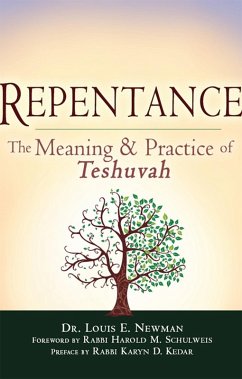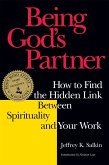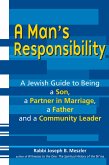An inspiring way to reclaim your integrity and renew your sense of moral purpose.
"Like water, teshuvah is both destructive and creative. It dissolves the person you were but simultaneously provides the moisture you need to grow anew. It erodes the hard edges of your willfulness but also refreshens your spirit. It can turn the tallest barriers of moral blindness into rubble while it also gently nourishes the hidden seeds of hope buried deep in your soul. Teshuvah, like water, has the power both to wash away past sin and to shower you with the blessing of a new future, if only you trust it and allow yourself to be carried along in its current." -from Part VII
In this candid and comprehensive probe into the nature of moral transgression and spiritual healing, Dr. Louis E. Newman examines both the practical and philosophical dimensions of teshuvah, Judaism's core religious-moral teaching on repentance, and its value for us-Jews and non-Jews alike-today. He exposes the inner logic of teshuvah as well as the beliefs about God and humankind that make it possible. He also charts the path of teshuvah, revealing to us how we can free ourselves from the burden of our own transgressions by:
. Acknowledging our transgressions . Confessing . Feeling remorse . Apologizing . Making restitution . Soul reckoning . Avoiding sin when the next opportunity arises
Hinweis: Dieser Artikel kann nur an eine deutsche Lieferadresse ausgeliefert werden.
"Like water, teshuvah is both destructive and creative. It dissolves the person you were but simultaneously provides the moisture you need to grow anew. It erodes the hard edges of your willfulness but also refreshens your spirit. It can turn the tallest barriers of moral blindness into rubble while it also gently nourishes the hidden seeds of hope buried deep in your soul. Teshuvah, like water, has the power both to wash away past sin and to shower you with the blessing of a new future, if only you trust it and allow yourself to be carried along in its current." -from Part VII
In this candid and comprehensive probe into the nature of moral transgression and spiritual healing, Dr. Louis E. Newman examines both the practical and philosophical dimensions of teshuvah, Judaism's core religious-moral teaching on repentance, and its value for us-Jews and non-Jews alike-today. He exposes the inner logic of teshuvah as well as the beliefs about God and humankind that make it possible. He also charts the path of teshuvah, revealing to us how we can free ourselves from the burden of our own transgressions by:
. Acknowledging our transgressions . Confessing . Feeling remorse . Apologizing . Making restitution . Soul reckoning . Avoiding sin when the next opportunity arises
Dieser Download kann aus rechtlichen Gründen nur mit Rechnungsadresse in A, D ausgeliefert werden.
Hinweis: Dieser Artikel kann nur an eine deutsche Lieferadresse ausgeliefert werden.









